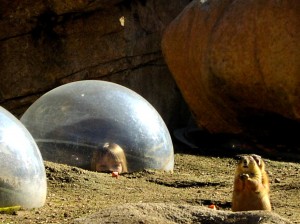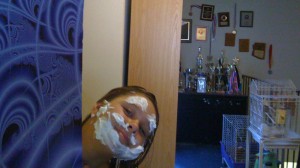Get out of your bubble
Whether you are a statistician, SPSS guru, SAS programmer or professor and world-renowned expert on re-incarceration, odds are great that you are susceptible to bubble-vision. You work, breathe and socialize within one or two very narrow bubbles.

This is bad and unhealthy. You’ll miss much of life that is beautiful, exciting, dramatic, interesting, tragic and delightfully fun. You’ll also focus too much on things that are not particularly important because you are looking only at whether your colleague in the Study of Very Important Flagellum Department unfairly criticized your latest conference presentation, who voted for you as Treasurer of the SVIF Society and what that editor of the Journal of SVIF said about your latest article submitted.

Be like Julia (the eponym for The Julia Group), live life large, interested and happy. In the interest of that goal, here are some interesting links to follow that relate to the world outside of my personal bubble:
The Disease Management Care Blog – is unfortunately named because, contrary to what you might think, it is far more interesting than a rectal exam. The latest post was on Comparative Effectiveness Research. I don’t wholly agree with the point cited that CER doesn’t take into account co-existing conditions, personal preferences, etc. It may not in all cases but that is no reason it couldn’t. The author discusses both sides of the issue of CER funding, whether we are spending too much on it, too little and does it do any good in the end? These are pretty general questions of life.
I love the New York Times because their coverage is intelligent and thought-provoking. This series on social class in America is even more the case than usual. My family certainly lives in a different class than the one I grew up in. When Julia was about four, I asked her if someone she had mentioned was her friend’s mother and she answered contemptuously,
“No, she’s him’s ‘anny !”
After all, who could be so dumb as to not know it is your NANNY that takes you to the park, not your mommy. Your mommy is probably working on a documentary or writing a blog on statistics or at the hospital delivering a baby.
When I was eight years old, I walked a mile home from school with my brothers and sister. During the summers, we watched ourselves, made ourselves lunch and solved our own fights, by means best not shared with my mother to this day. Let me just say that the broken front window, the broken down bathroom door and the scars on my second brother’s forehead – none of those were me. My oldest brother’s broken finger or the drainpipe inexplicably pulling away from the second floor, well, I plead the fifth.
Their discussion of class was fascinating to me in part because, being over-involved in judo (I am the president of the United States Judo Association) in my copious spare time, of which I have none, I meet people from all possible strata of American society, most of whom haven’t a clue what a stratum is. Some are absolutely infuriated that I do not do as I am told. What the New York Times articles highlighted was the class differences in the value placed on doing what one is told versus finding the right answer. It never even occurred to me that blind obedience could even be considered a virtue.
Wiki-books is an interesting concept. Free textbooks. Not great in quantity, but hey, if you want to contribute, go ahead, or read whatever happens to be there. Every now and then I go just to read at random. Today, I read How to Do Nothing. As anyone who has ever met me can tell you, it is a textbook I sorely need to read.
Speaking of the judo association, another good site to check out is the page on Social Capital from bettertogether.org . This Internet thing is pretty cool. Where else could you read original research by people from Harvard University while sitting in your massage chair? Or find 150 ways to increase your social capital.
Right now, I think I am going to do #86, log off and go to the park, even though I am not, in fact, a nanny.
You are SAS Tech Report. Thank you for sharing your inspirational profile. “How To Do Nothing” is definitely one of my next books on the list.